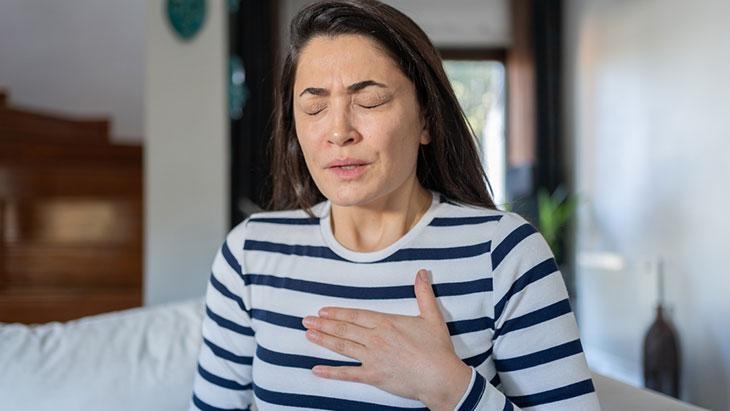Critical warning from expert: 'Cervical cancer does not show symptoms until it progresses'

Obstetrics and Gynecology Specialist Dr. Yasemin Aydın Çam provided information about cervical cancer. Emphasizing that cervical cancer is a type of cancer that develops in the cervix, the part of the uterus that opens into the vagina, Dr. Çam explained that the disease generally occurs when high-risk HPV (Human Papillomavirus) types cause changes in cervical cells over time.
"BEWARE OF THE INSIDENTIAL NATURE OF THE DISEASE"Specialist Dr. Çam emphasized the insidious nature of the disease, saying, "The early stages are usually asymptomatic. If symptoms such as abnormal bleeding after intercourse or after menopause, foul-smelling discharge, or groin pain appear, it usually means the cancer is already advanced."
"IT CAN BE DETECTED AT AN EARLY STAGE WITH SCANNING"Specialist Dr. Çam emphasized that because cervical cancer progresses without symptoms, it's essential for women to seek medical attention without waiting for symptoms. He continued: "Unfortunately, most patients come in after symptoms begin, meaning when the disease has progressed. However, screening tests can detect cancer while it's still in the cellular transformation stage. Early diagnosis saves lives. If precancerous cell changes are detected at this stage, the disease can be completely cured."
"HPV TEST DETECTS THE VIRUS, SMEAR TEST DETECTS CELLULAR CHANGE"Specialist Dr. Çam stated that two basic methods are used in early diagnosis, saying, "While the HPV test detects the virus itself, the Pap smear test examines the changes this virus causes in cervical cells. According to current guidelines, it is generally recommended that women between the ages of 21 and 29 have a Pap smear test every three years, and women starting at age 30 should have an HPV test every five years."
"SHAME AND FEAR PREVENT US FROM GOING FOR A CONTROL"Dr. Çam, noting that screening rates in Türkiye are not at the desired level, listed the obstacles as follows: "Lack of awareness, difficulty accessing healthcare in some regions, and misconceptions are among the biggest obstacles. Shame, hesitation to undergo examinations, the belief that there will be pain, the idea that 'there's nothing wrong with me,' and certain cultural taboos can unfortunately prevent women from going for regular checkups. Fear of possible outcomes is also a significant factor. However, it's important to remember that with regular checkups, the results we can achieve will be much more treatable."
"VACCINATION CONCERNS NOT ONLY WOMEN, BUT ALSO MEN"Specifically, Dr. Çam stated that the HPV vaccine is the most effective method for cancer prevention, and addressed disinformation in society, continuing: "Misinformation about the vaccine, concerns about trust, and prejudices such as 'vaccinating at an early age encourages sexuality' lead families to be hesitant. Another misconception is that 'this only affects women.' However, men can also be HPV carriers and even experience genital warts and some types of genital cancer themselves. The goal of vaccination is to reduce HPV circulation by ensuring adequate immunization in society. Therefore, vaccinating men is crucial for both their own health and the health of the public. The younger the vaccination, the more effective it will be."
"CHEMOTHERAPY MAY BE NECESSARY WHEN CANCER ADVANCES"Specialist Dr. Yasemin Aydın Çam stated that the treatment process varies depending on the stage of the disease, saying, "While surgery is sufficient in the early stages, radiotherapy and chemotherapy may be necessary in advanced cases."
Specialist Dr. Çam concluded her remarks with the following call to women: "My biggest advice to women is to not postpone their checkups and to embrace their health without shame. Cervical cancer is a preventable disease; the only requirement is to take the necessary steps in a timely manner."
Cumhuriyet




